Chindindu Innocent is a JSS 2 student of Bolade Grammar School, Oshodi, Lagos. The teenager came by his first name, which means God is alive, for coming into the world on January 27, 2002, a day that goes into the record books as one of the most devastating since the creation of Lagos.
Hours after he was born, unused ammunition at the Armour Transit Depot (ATD) of the Ikeja army cantonment exploded; and out of ignorance, people began running helter skelter thinking they had been caught in the midst of a sudden war.
The incident led to the loss of some lives within the barracks, but the highest casualties came from some 10 kilometers away: some residents of Ajao estate and its environs attempted to escape to neighbouring Oke-Afa in Ejigbo, Isolo local government area, but that decision turned out being their greatest undoing.
The surface of the canal appeared dry, but as they stepped on it, they sank. One, two, three, four, 100… They start sinking and the outcome is a mass grave cum monument built in honour of more than 500 people who perished in that tragedy.
Advertisement

Till date, many families are bereaved and several others who got displaced as a result of the incident are still lamenting the woes of such a day.
It is not the same sad story for everyone involved, though. While the family of Innocent always felicitates every January 27, the same cannot be said of Okere family and several others who lost their loved-ones.
Victor Innocent, a businessman in Mafoluku, Oshodi, shares the experience of how he managed to escape the tale of agony.
Advertisement
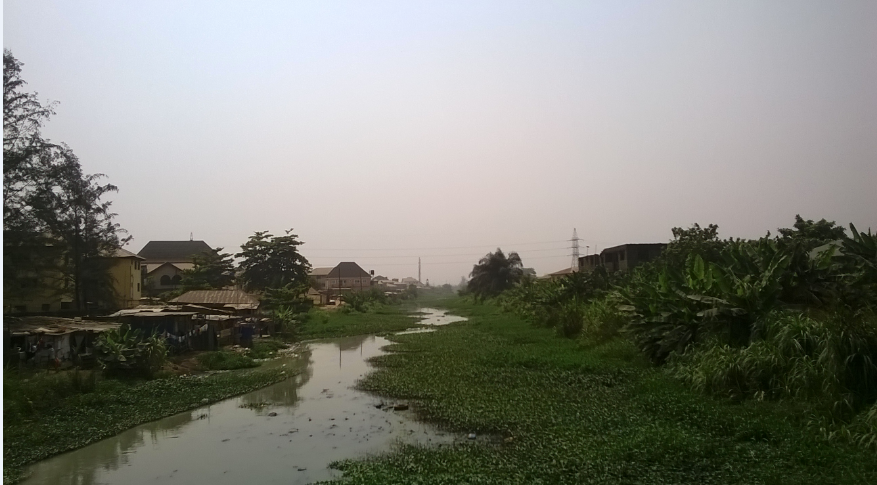
“The doctor and nurses at Vine Hospital in Mafoluku, here ran out of the hospital, forgetting that my wife who had just delivered our first son needed medical attention,” he opened up to TheCable.
“I carried my baby and used the other hand to assist my wife as we rushed into a nearby Deeper Life Bible Church, where many people sought refuge.
“There was no space in the church yet people kept coming inside. It’s quite a remarkable day. Both Muslims and Christians started praying because we didn’t know what would happen the next moment.”
The indigene of Abia state, who declined to have his pictures taken, said he thought the world would come to an end on that day.
Advertisement
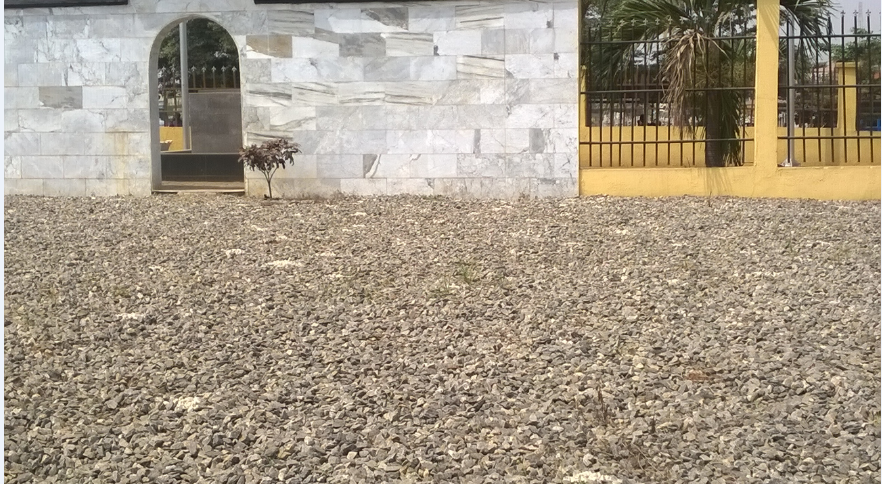
But the feeling of the Okeres was quite different because not only was Chinedu, one their sons, declared missing, neither he nor his body has been found till date.
“We searched everywhere, even went to some police stations, television stations and radio stations but we could not find his remains,” Faith, the bereaved mother, said.
She has had the cause to tell the story over and over again but rather than get fed up with the sad tale, she is quite optimistic that there is a possibility of reuniting with him again.
“We pray about Chinedu everyday. Oh! How much I miss my son, who loved me so much,” the petty trader at a roadside market adjacent the headquarters of the Christian Pentecostal Mission (CPM) in Ajao estate, said.
Advertisement
“With God all things are possible. I believe I can still see my son because that boy loved me so much. What would he not do without me? Even this morning, we still mentioned him in prayers.
“I have not given up. I believe I can still see him.”
Advertisement
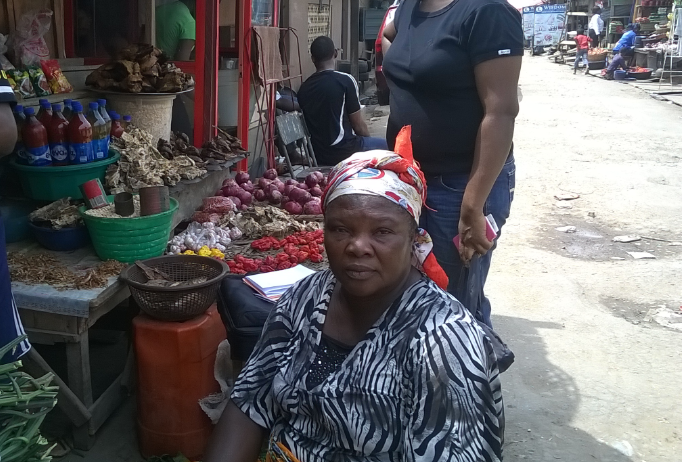
Aliu Otaro, a resident of Oke-Afa, who witnessed the incident, went down memory lane.
“Till date a particular event is still etched in my memory,” he said.
Advertisement
“There was a woman who died alongside three of her children. The surprising thing was that when their corpses were brought out, she died holding her two children (one in her right hand and the other in her left), while the third one was strapped to her back.

“She did not leave them even when death came calling and that summarises the love of a mother for her children. That encounter marvels me till date.”
Advertisement
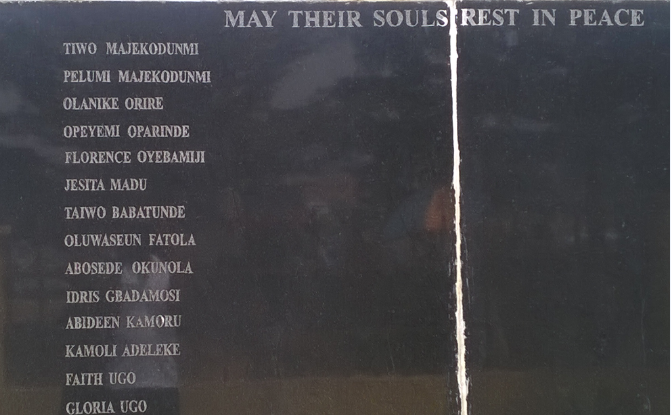
As typical of significant events in Nigeria, the emphasis placed on the event has reduced drastically.
A resident of Oke-Afa who did not want to be named said only missionaries from the Catholic Church had been consistent with annual memorial services at the memorial site.
“For the first five years after the incident occurred, the state government was consistent with memorial service in honour of the victims,” he said.
“But they started losing interest gradually. We have not seen them for the past two years now. But since this is election season, they would surely come.”
Yusuf might be correct; after all, a campaign poster was found on the gate of the memorial site. Whether it is a mockery of the victims or ignorance on the part of those who pasted it there, one thing is clear: politicians do not joke with their business.

Ikeja bomb blast truly means different things to people. While its memories force some people to weep, some others see it as a source of joy. Such is the irony of the world we live in?
According to Otuaro, the social development of Oke-Afa is tied to the incident, as the community was a remote place before the disaster. Not only did landowners receive huge patronage in 2002, the impact of government was also felt.
“How many people knew Oke-Afa before that incident happened?” he asked.
“People started trooping here after that tragedy. Even the state government had to construct a bridge linking us with Isolo because we were having problems on the plank bridge that we constructed. The government intervened by constructing the bridge.”
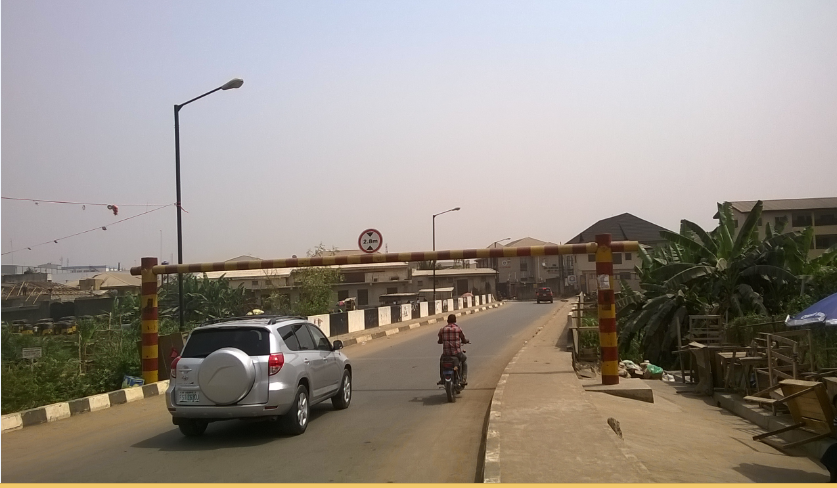
As the nation marks the 13th anniversary of an avoidable disaster, it is unfortunate that no meaningful effort has been made to prevent a recurrence.
Proper forensic report of the event is yet to be seen and the outcome of the panel of inquiry set up after the incident has not been made public.
After visiting the scene of the tragedy alongside then Governor Bola Tinubu, Olusegun Obasanjo, president at the time, had promised to do justice to the matter.
Many expected actions to be taken, particularly after Kolawole Emdin, the then commanding officer of the Ikeja cantonment, blamed the tragedy on the lackadaisical attitude and negligence on the part of those in authority at the time.
He said the blast should have been pre-empted some months before it actually occurred because the different army formations in the state as of then informed the senate committee on defence and the army headquarters of the impending disaster at the Armour Transit Depot (ATD) situated within the cantonment.
Emdin also said Alexander Ogomudia, who was then the chief of defence staff, was fully aware of the precarious situation of the ATD, adding that during one of Ogomudia’s visits to the ATD, he ordered that tarpaulin be acquired to cover the littering bombs from the sun.
As we wait on government to do a proper stock taking of the tragedy, we cannot but wonder if adequate remedy has been put in place to prevent a recurrence.
Add a comment






